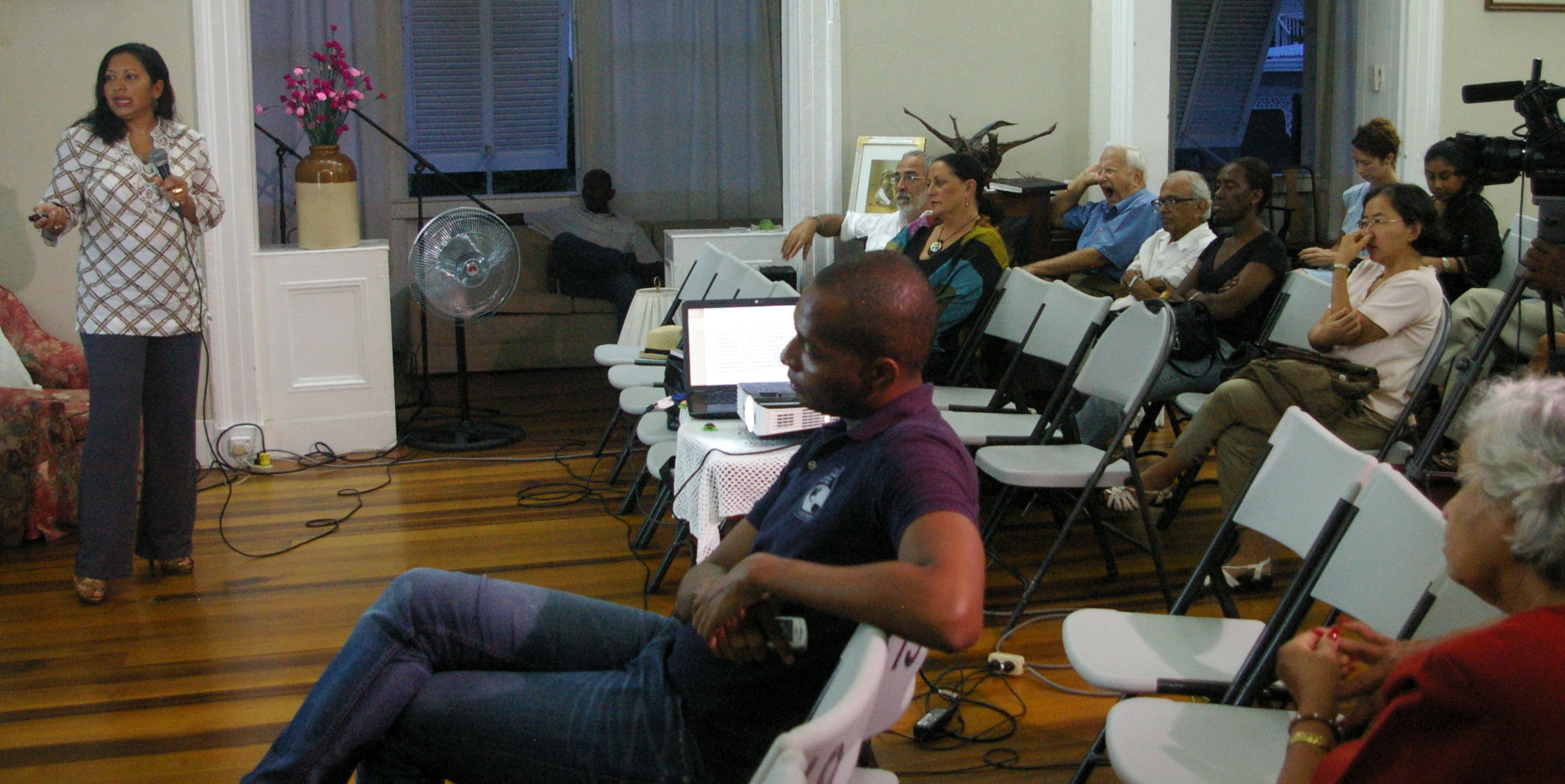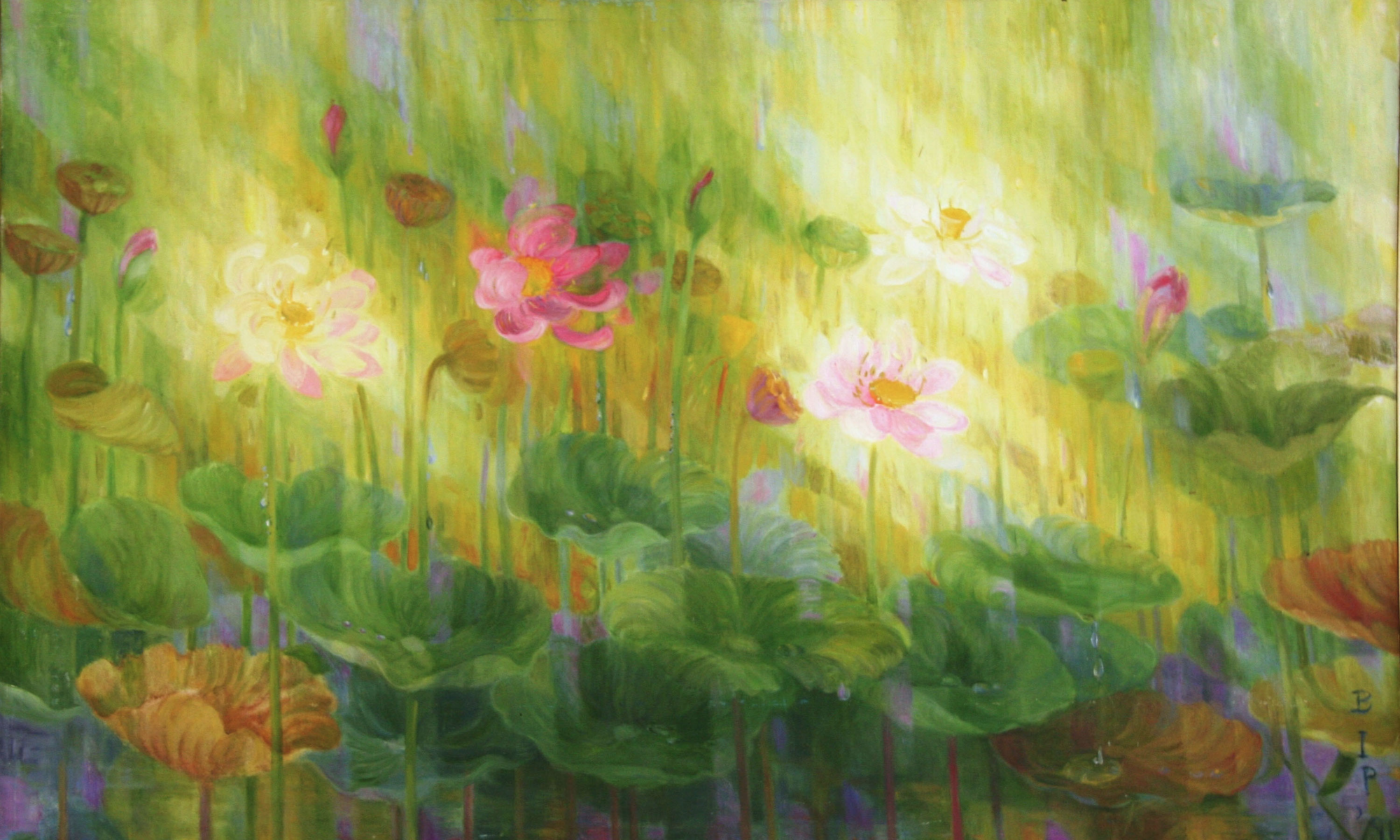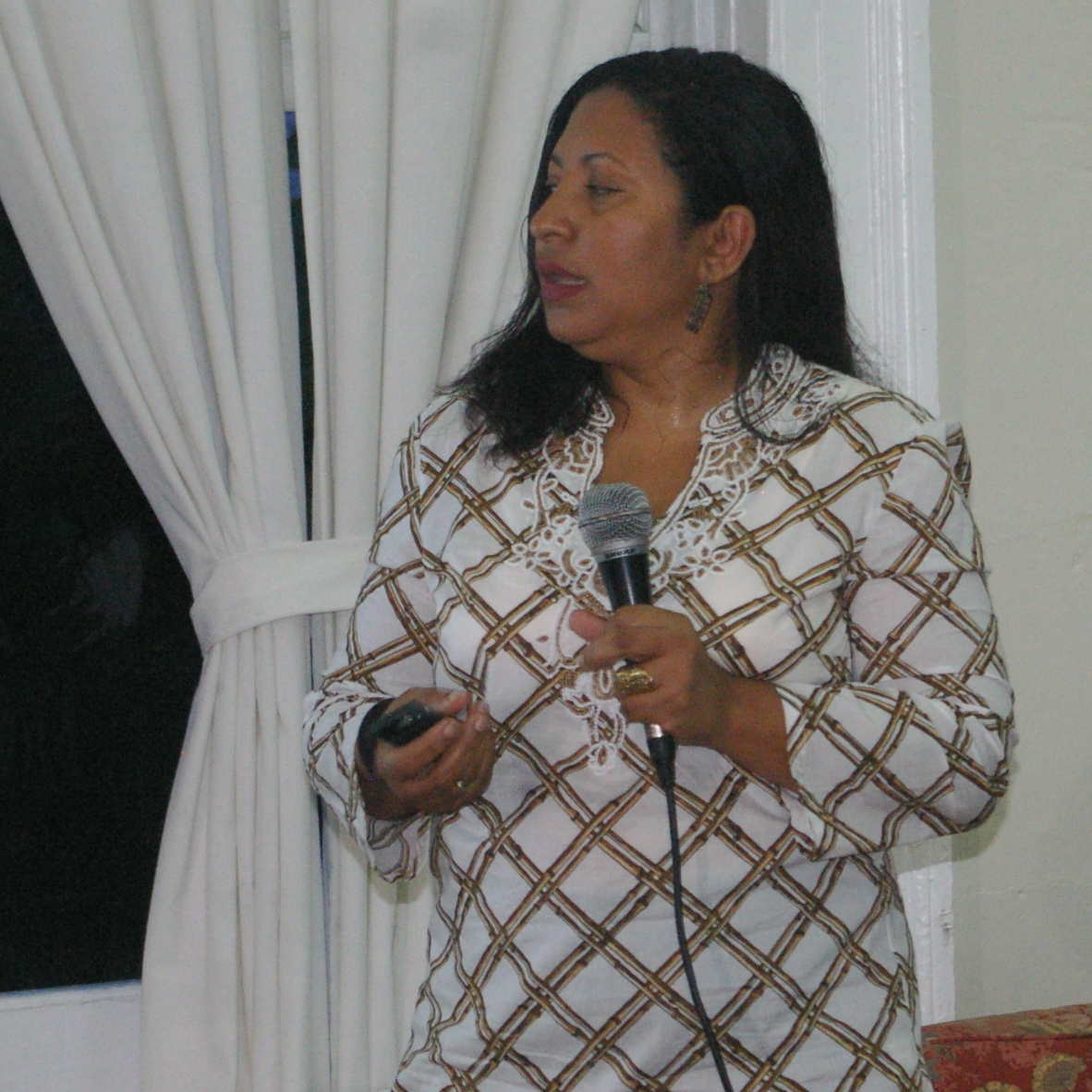Activity: Lecture
Co-ordinator: Moray House Trust
Date: Friday, 10 August 2012

Dr Paloma Mohamed, Dean, Faculty of Social Sciences, University of Guyana undertook a preliminary examination of The Creole’, Guyana’s second coloured newspaper at an event to commemorate African Emancipation.
Dr Mohamed outlined the history of Guyana’s longest surviving coloured newspaper, ‘The Creole’. Set up, just after emancipation in 1857, it lasted for half a century, with income from subscriptions and advertising. Dr Mohamed discussed the political climate at the time of its appearance, the nature of its content and some of its more famous editors such as Patrick Dargan (1850-1908), a local lawyer and strong advocate for the people.
‘Freed Africans, The Press and Post Slavery in Guyana:
A Preliminary Examination of ‘The Creole’ – Video Clips
Introduction:‘The Creole’, Guyana’s Second Coloured Newspaper
The Creole, owned and operated by J. William Braithwaite, a Barbadian, was set up a few months after the ‘Angel Gabriel riots of 1856 and described itself as the ‘poor man’s Journal.’ Dr Mohamed outlines the political climate in which the newspaper operated.
http://www.youtube.com/watch?v=4Nrf7wwU0ME
Part 2: The Creed of the Creole
Dr Mohamed describes some of the key characters of the period such as Governor Wodehouse, J.W Braithwaite (founder and editor of ‘The Creole’) and Patrick Dargan (a subsequent editor). The Creole’s name and creed were both the subject of some debate at its inception. Its creed stated: “We wish to make it understood, once and for all, the man who assumes superiority over others on account of his colour and the man who acknowledges inferiority to others on account of his colour are both fools alike.”
http://www.youtube.com/watch?v=-5V8gIzu6RA
Part 3: The paper, which was available by subscription, was instrumental in ‘recording the history from a black and coloured perspective’ and developed from a twice weekly four page publication to a daily newspaper.
http://www.youtube.com/watch?v=YE7y7yEddIo
Part 4: Questions and comments from the floor. Dr Mohamed, who is of Indo-African parentage, shares some personal insights and concludes: “We must not believe that how we tend to be sometimes is how we have to be because that was not how we started.”
http://www.youtube.com/watch?v=DP-KurVlcoA

